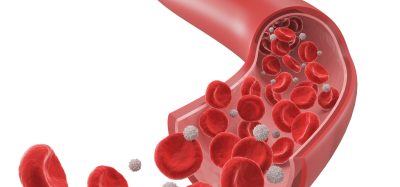AI-driven Alzheimer’s therapies show promise in early studies
Posted: 8 August 2025 | Drug Target Review | No comments yet
Porosome Therapeutics has announced new advancements in Alzheimer’s treatment – presenting therapies that restore neuronal function, reduce Tau protein levels and reverse disease pathology in human brain organoids.


Porosome Therapeutics Inc has announced new advancements in its disease-modifying neurological platform that could transform Alzheimer’s disease (AD) research and care. Unlike conventional treatments that focus only on symptom management, the company’s approach addresses the root cellular dysfunctions at the core of the disease.
Moving beyond symptom management
Using its ‘Reprogram, Restore, and Rescue’ strategy, Porosome Therapeutics introduces healthy porosomes – neuronal secretory nanomachines – into diseased neurons. This new therapy restores the neurons’ secretory and metabolic systems – tackling Alzheimer’s at its source.
“Unlike therapies that merely dissolve beta amyloid plaques, our platform directly targets the core biological dysfunctions of Alzheimer’s, restoring both neurotransmission and metabolic integrity,” said Guillermo Marmol, CEO of Porosome Therapeutics. “Given Alzheimer’s is a serious and life-threatening disease with no effective treatment options, and based on our ability to deliver quantifiable, biomarker-driven improvements, including Tau reduction and disease reversal in human brain organoids, we are actively exploring the FDA’s accelerated approval pathway.”
Biomarkers aren’t just supporting drug discovery – they’re driving it
FREE market report
From smarter trials to faster insights, this report unpacks the science, strategy and real-world impact behind the next generation of precision therapies.
What you’ll unlock:
- How biomarkers are guiding dose selection and early efficacy decisions in complex trials
- Why multi-omics, liquid biopsy and digital tools are redefining the discovery process
- What makes lab data regulatory-ready and why alignment matters from day one
Explore how biomarkers are shaping early drug development
Access the full report – it’s free!
FDA-validated results with human brain organoids
The company’s recent studies have demonstrated a rapid reduction in Alzheimer’s pathology in human brain organoids treated with its principal therapy. Brain organoids are three-dimensional cell cultures derived from stem cells that mimic the structure and function of the human brain. Within just two weeks, treated organoids showed significant reversal of Alzheimer’s pathology – offering strong evidence of the therapy’s effectiveness.
“When using human brain organoids, we’re able to observe the molecular activity of the porosome at an entirely new scale,” said Dr Bhanu P Jena, Founder and Chairman of Porosome Therapeutics. “The ability to create an immense impact in just two weeks is a promising step forward and marks an important milestone as we advance the future of Alzheimer’s research and care.”
Targeting tau and beta amyloid
A major highlight of the company’s work is its ability to significantly reduce Tau protein levels – a critical biomarker of Alzheimer’s approved by the FDA. The FDA’s recent approval of the Tau test highlights the importance of biomarker-driven therapies in advancing AD treatment.
Additionally, the company is leveraging artificial intelligence (AI) to develop proprietary decoy peptides that neutralise the toxic beta amyloid peptide (1-42). This peptide is known to disrupt protein to protein interactions within the neuronal porosome complex – impairing neurotransmitter release. AI-designed decoys bind more strongly to beta amyloid (1-42), protecting porosome functions and preserving brain cell communication.
Establishing new classes of Alzheimer’s therapeutics
Through its research, Porosome Therapeutics has established three novel classes of therapeutics aimed at stopping and reversing Alzheimer’s pathology:
- Small molecules and peptides – Cross the blood-brain barrier to restore mitochondrial function.
- Biologics – Reconstitute the porosome complex to reverse neuronal secretory dysfunction.
- AI-designed peptides – Neutralise toxic beta amyloid peptides (1-42) to safeguard neurotransmission.
A new era for Alzheimer’s treatment
With its multi-faceted approach and new technologies, Porosome Therapeutics is aiming to change the direction of Alzheimer’s research and therapy. The company’s combination of biomarker-driven outcomes, organoid model validation and AI-designed innovations positions it at the forefront of the fight against this devastating disease.
Related topics
Artificial Intelligence, Biologics, Biomarkers, Cell Cultures, Central Nervous System (CNS), Drug Development, Drug Discovery Processes, Molecular Biology, Neurons, Neuroprotection, Organoids, Peptide Therapeutics
Related conditions
Alzheimer's
Related organisations
Porosome Therapeutics








